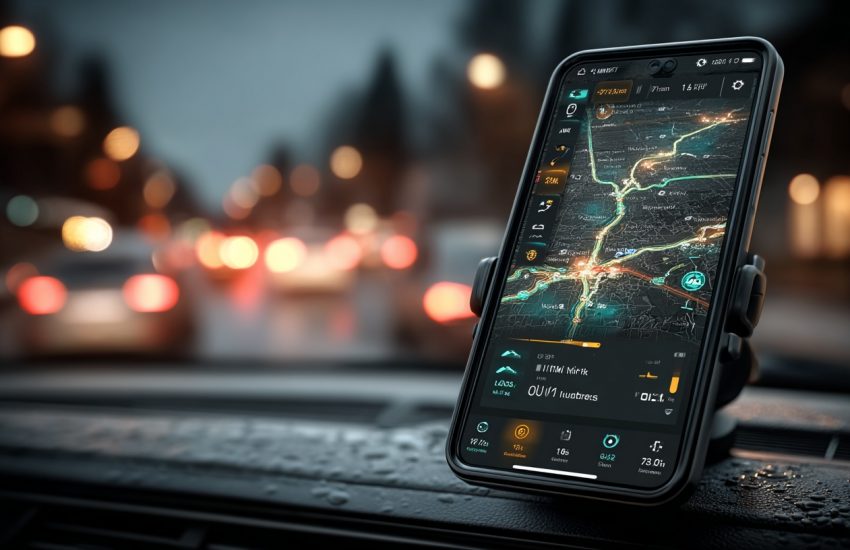It’s a digital world, and everyone has a mobile phone equipped with apps that make life easier. Millennials and Gen Z heavily rely on their phones for nearly everything, including job applications. Today, over 68% of all job applications in service sectors — like retail, hospitality, logistics, healthcare, and even accounting services in UAE — are expected to be submitted via mobile devices. This trend highlights a clear shift towards mobile-first recruitment. Mobile recruitment apps are transforming hiring by offering unparalleled accessibility, speed, and engagement, connecting companies with a broader, more diverse candidate pool.
With smartphone subscriptions projected to exceed 7.7 billion by 2028, the demand for a streamlined mobile recruiting experience has soared. By adopting mobile recruitment strategies, organizations can provide a more engaging candidate experience and attract higher-quality hires.
Benefits of mobile recruitment
Key advantages include:
1. Wider reach
With over 6.5 billion smartphone users worldwide, mobile hiring allows organizations to tap into a broader and more diverse talent pool, reaching candidates wherever they are. This is particularly beneficial for businesses looking to expand their reach, such as those utilizing recruitment process outsourcing in Dubai to attract global talent. This approach also appeals to younger, tech-savvy generations, fostering an environment ripe for innovative ideas.
2. Enhanced candidate experience
A positive candidate experience improves employer branding. The days of complicated, lengthy application processes are over. Candidates now seek a streamlined procedure that allows them to browse, apply, and track applications with a single click. Organizations that simplify the candidate journey report up to 70% higher completion rates and improved employer branding.

3. Faster hiring
Mobile recruitment significantly speeds up the hiring timeline. Features like SMS, WhatsApp, instant applications for interview scheduling, and AI chatbots expedite the process. It’s easier for applicants to apply instantly and receive feedback, which is crucial as candidates don’t stay on the market for long.
4. Higher engagement
People check their mobile devices an average of 96 times per day. Individuals who frequently access their phones are more likely to read and respond to messages quickly, communicating more easily due to their strong connection with their devices. They are often more responsive to text messages than emails. Employers should leverage this to make candidate collaboration as smooth as possible.
5. Accelerated data analytics
Advanced mobile platforms enable recruiters to track a candidate’s exact interaction with job listings. This data reveals job ad performance, engagement times, and more, helping recruiters refine strategies and make necessary adjustments.
6. Real-time communication
Modern mobile platforms facilitate smooth and rapid communication by providing instant responses. Candidates no longer need to wait for in-person meetings or make multiple calls for updates. They can use features like chatbots to check their application status.
Future trends in mobile recruitment
Future mobile trends are innovative and adaptable. Companies and recruiters must stay current with emerging trends and adapt them to their business needs. Here are a few:
1. AI-backed tools
AI-powered mobile tools empower candidates and employers to drive the recruitment process efficiently. Tasks such as candidate screening, interview scheduling, and initial assessments can be automated and expedited with AI.

2. Mobile-aligned platforms
Organizations and recruiters are prioritizing mobile-friendly platforms, as most candidates are constantly on their phones. These platforms allow access to information anytime, anywhere, with real-time assistance and feedback for more efficient planning and application.
3. Data-driven process
Organizations are increasingly emphasizing data analytics to track and evaluate recruitment progress. Data analytics helps identify key areas for improvement, enabling recruiters to target audiences with precise messaging and reach appropriate candidates effectively.
4. Personalized candidate experience
Companies and recruiters are focusing on candidate well-being and a personalized experience. They are developing customized systems to communicate with individuals via mobile apps and chat tools, ensuring candidates receive real-time information and consistent engagement.
5. Immersive tech
Innovative technologies like virtual and augmented reality on mobile phones engage more people by offering firsthand experiences of a company’s brand and values. This includes virtual job fairs, organizational tours, and 360-degree video tours, all of which enhance candidate engagement.












